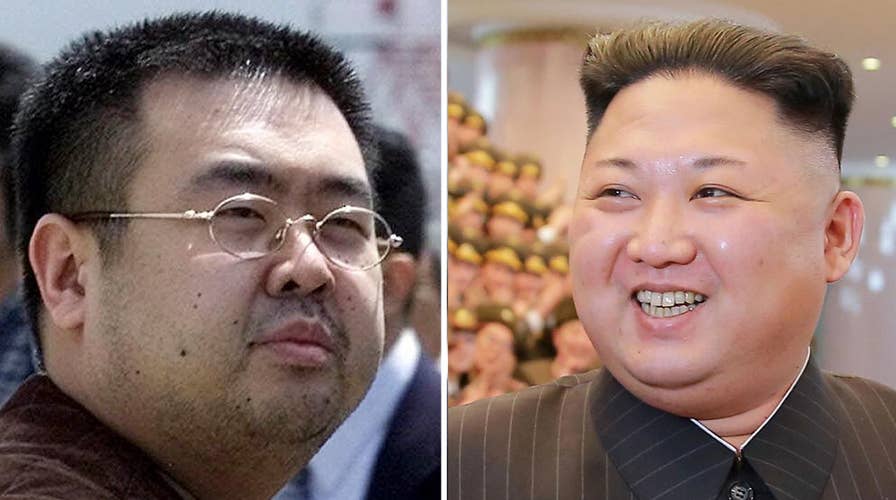Eric Shawn reports: North Korea and VX
The investigation into Kim Jong Nam's brazen assassination
UNITED NATIONS – North Korea is flouting United Nations sanctions by trading in prohibited weapons and other goods and using evasion techniques "that are increasing in scale, scope and sophistication," U.N. experts say in a new report.
The panel of experts monitoring sanctions against Pyongyang said that despite strengthened financial sanctions adopted in 2016 the country is still accessing formal banking channels "by using greater ingenuity."
"Their ability to conceal financial activity by using foreign nationals and entities allows them to continue to transact through top global financial centers," the experts said in the report to the Security Council obtained Tuesday by the Associated Press.
North Korea is also continuing to export banned minerals to earn needed revenue despite new sanctions adopted last year, they said. And it has adapted to a list of vessels prevented from entering foreign ports through various tactics, "including identity fraud."
The panel criticized the international community for failing to match its support for tougher sanctions against North Korea in two resolutions adopted last year with the "political will" and resources to ensure their implementation. The experts said their investigations show that "implementation remains insufficient and highly inconsistent."
They urged the U.N.'s 193 member states to reaffirm their commitment to "rigorous enforcement" of the sanctions. Only 76 have submitted reports on what they are doing to implement the March 2016 sanctions resolution.
The 105-page report details North Korea's continuing violations of U.N. resolutions demanding that it abandon nuclear and ballistic missile programs. The report analyzes photographs showing rapid technological advances in the North's nuclear and missile tests and its use of foreign-made components, including some made in China found in debris from a rocket launch on Feb. 7, 2016.
In discussing arms trade sanctions, the panel said a vessel commanded by a North Korean captain intercepted by Egypt on Aug. 11, 2016, en route from North Korea and heading toward the Suez Canal was found to contain 30,000 PG-7 rocket-propelled grenades and related components in wooden crates concealed under about 2,300 tons of iron ore.
The seizures from the Jie Shun were the largest of ammunition in the history of sanctions against North Korea, the experts said, "and showed the country's use of concealment techniques, as well as an emerging nexus between entities trading in arms and minerals."
The panel said it also inspected an air shipment intercepted by an unidentified country that originated in China and was destined for a company in Eritrea. It said the consignment of 45 boxes contained "military radio communications products and related accessories" manufactured in North Korea that violated the arms embargo against the country.
The experts said they were continuing to investigate a shipment of Scud missile spare parts to Egypt from a North Korean trading company, the reported supply of portable surface-to-air missiles from the North to Mozambique, and North Korea's reported supply of 122-mm guided rockets and aerial missiles to Sudan — among other reports.
The U.N. also has banned the import of luxury goods to North Korea and the panel said it is continuing to investigate the supply of ski equipment for the Masikryong ski resort, including a cable car system produced by an Austrian company. The report said Austria did not consider ski lifts to be included in the ban but they would now be added explicitly to the European Union's list of luxury goods.
The panel said aircraft manufactured in New Zealand and Italy that were shown at the Wonsan air show in September 2016 had been transferred to third countries that did not consider them luxury goods, highlighting the problem of defining exactly what constitutes a luxury good.
In the financial sector, the panel said it identified multiple ways in which North Korean financial institutions and networks access the international financial system to evade sanctions. These include having North Korean banks hold accounts with foreign banks, form joint ventures with foreign companies, and maintain representative offices abroad, getting foreign companies to establish banks in the North, and using the North's trading companies to open bank accounts.
The panel said North Korea "also uses bulk cash and gold to entirely circumvent the formal financial sector."









































